Exploring Herbal Solutions for Anxiety
What is the best herbal medicine for anxiety?
Can herbal solutions effectively alleviate anxiety? Individuals experiencing moderate to intense anxiety might prefer finding a suitable herbal alternative over-relying on prescription medications. So what is the best herbal medicine for anxiety? What should you pay attention to when using herbal medicine to treat anxiety? Swipe down to check it out!
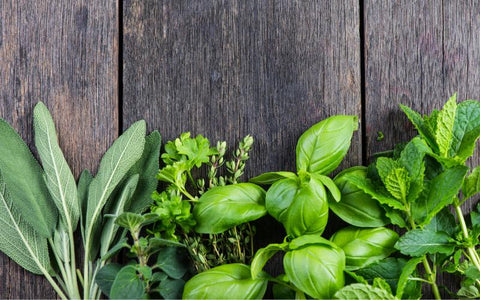
Discover the best herbal medicine to reduce anxiety
What is the best herbal medicine for anxiety?
1. How does herbal medicine relieve anxiety?
2. Why should you choose herbal medicine instead Western medicine for anxiety?
3. What is the best herbal medicine for anxiety?
3.1 Ashwagandha
3.2 Lavender
3.3 Valerian root
3.4 Lemon balm
3.5 Passionflower
4. Notes to know when using herbal medicine for anxiety
5. Conclusion
1. How does herbal medicine relieve anxiety?
Herbal anxiety treatments typically influence the nervous system, neurotransmitters, or hormones involved in stress and anxiety. The specific mechanism of action may differ based on the particular herb or supplement.
Herbal medicine may alleviate anxiety through the following methods:
Balancing neurotransmitters: Certain herbs may assist in regulating neurotransmitters like serotonin, dopamine, and GABA, which contribute to mood and anxiety regulation.
Encouraging: Some herbal solutions possess sedative or relaxing properties that can aid in reducing anxiety by fostering relaxation and decreasing stress.
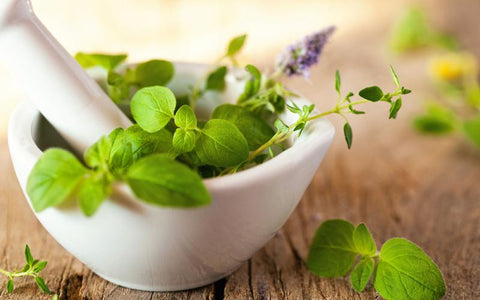
Alleviating inflammation: Anti-inflammatory properties in some herbs may help alleviate anxiety by lowering brain inflammation.
Providing antioxidant benefits: Herbs with antioxidant capabilities may protect the brain from oxidative stress, a contributing factor to anxiety and other mental health concerns.
2. Why should you choose herbal medicine instead Western medicine for anxiety?
Opting for herbal remedies instead of Western medicine for anxiety management is derived from personal choices and circumstances. Some reasons for considering herbal solutions include the following:
- Plant-based origins: Herbal treatments derived from plants may resonate with those seeking a natural healthcare approach.
- Minimal side effects: Herbal options typically have fewer and less severe side effects compared to conventional medications, making them appealing to individuals concerned about medication sensitivity or side effect avoidance.
- Comprehensive outlook: Herbs often form part of a broader health strategy that considers an individual's overall well-being rather than solely addressing specific symptoms or conditions.
- Integrative treatment: Herbal solutions can be combined with other therapeutic interventions, such as counseling, meditation, and lifestyle modifications, to create a multifaceted approach to anxiety management.
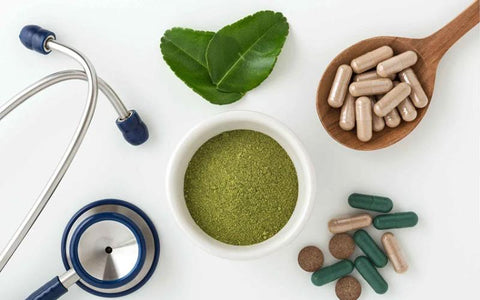
It is crucial to note that the effectiveness of herbal remedies in treating anxiety may vary among individuals, and further research is needed to confirm their safety and effectiveness.
3. What is the best herbal medicine for anxiety?
There are many types of herbal medicine for anxiety and depression, each used in its own way in the treatment process. Here are the top 5 best options that you should refer to:
3.1 Ashwagandha
Ashwagandha, also known as Withania somnifera, is classified as an "adaptogen," a group of herbs that influence systems and hormones responsible for regulating stress responses.
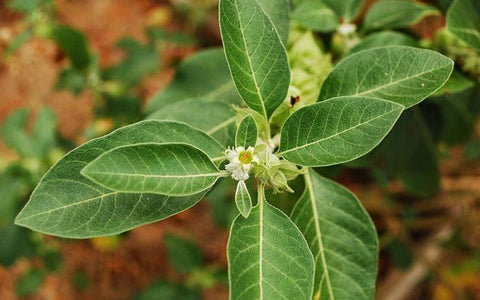
In a 2019 study, the effectiveness of ashwagandha in managing stress and anxiety was examined. The 8-week study involved 58 individuals with perceived stress who were randomly assigned one of three treatments: Ashwagandha extract at daily doses of either 250 mg, 600 mg, or a placebo. Participants who took ashwagandha had lower cortisol levels and improved sleep quality compared to the placebo group.
You can use Ashwagandha in tablet form or as a liquid tincture.
3.2 Lavender
Lavender is widely recognized for its capacity to induce relaxation without sedative effects. Its soothing properties not only create a tranquil mindset but also help alleviate anxiety.
The lavender essential oil has proven effective in easing anxiety, restlessness, agitation, sleep disturbances, nervousness, and depression-related symptoms.
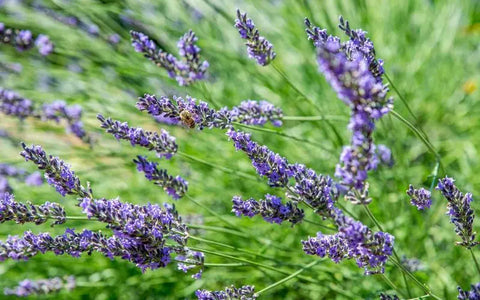
Research from 2005 discovered that the combined aroma of lavender and orange reduced anxiety among dental patients. Another study suggested that aromatherapy during childbirth can help alleviate anxiety in expecting mothers.
Using three drops of lavender inhaled every eight hours for four weeks was shown to prevent stress, anxiety, and postpartum depression.
3.3 Valerian root
Valerian root has been used for many years for its calming benefits. It is used to treat many conditions, but its primary purpose is to treat anxiety and sleep disorders.
Although there is no FDA approval, Valerian root is considered safe for adults for short-term use. It can be taken in many forms, such as capsules, teas, and tinctures.
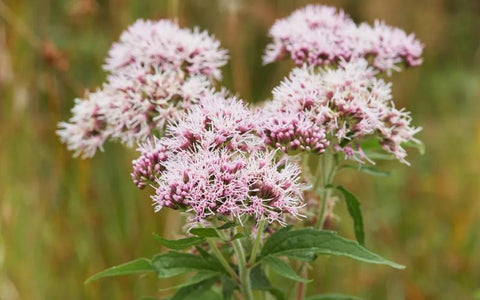
3.4 Lemon balm
Originally from the Mediterranean region, lemon balm has been utilized as both a culinary herb and a natural remedy. In recent times, anxiety has gained interest as a potential treatment for disorders, as it is thought to enhance mood and cognitive function while reducing stress and tension.
Lemon balm can be used fresh or dried in food and medicinal applications and is available in various forms, such as teas, supplements, and essential oils. For those who prefer a hands-on approach, lemon balm plants or seeds can be purchased to cultivate at home.
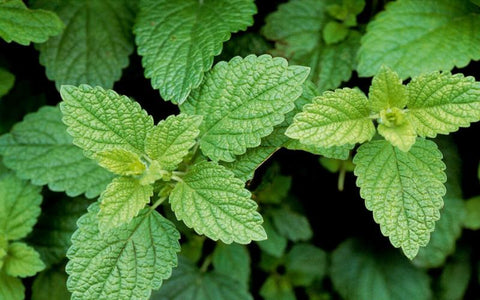
3.5 Passionflower
Plant-based medications contain components called "flavonoids" that impact the body. Passionflower is rich in flavonoids, and some evidence suggests that "chrysin" and "benzoflavones" may be the primary flavonoids responsible for reducing anxiety in passion flowers.
However, when using passionflower to address anxiety, adhering to the recommended dosage is crucial to avoid potential harm. Higher doses may impair motor skills, with dizziness, confusion, and diminished muscle coordination reported as potential side effects.
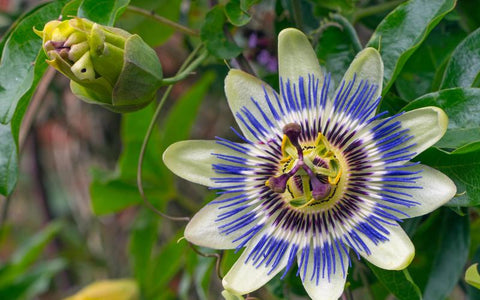
4. Notes to know when using herbal medicine for anxiety
While herbal supplements are subject to less FDA regulation than drugs, improvements in quality control have been made. However, it is important to note that the quality of some supplements may still be an issue, and the label "natural" does not always equate to safety.
Suppose you are considering taking herbal supplements to alleviate anxiety. In that case, it is highly recommended to consult your doctor first, especially if you are taking other medications. Some supplements may interact negatively with certain medications, leading to serious side effects.
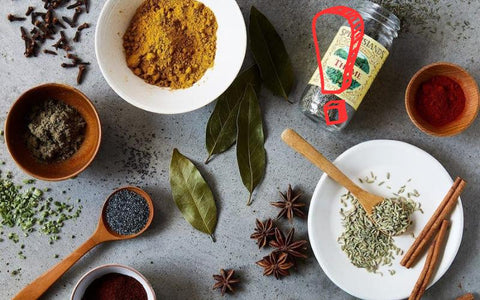
Additionally, certain herbal supplements used for anxiety may cause drowsiness and impair your ability to safely perform tasks such as driving.
It is important to understand these supplements' potential risks and benefits before trying them, which your doctor can help you navigate. If your anxiety is interfering with your daily life, seeking medical treatment or psychotherapy may be necessary.
5. Conclusion
In short, this article helps you know “What is the best herbal medicine for anxiety?” and many more. Although herbal remedies are a trusted method for reducing anxiety, they can cause side effects in many ways. So, you should consult your doctor first and buy high-quality herbal medicine. Come to





Leave a comment